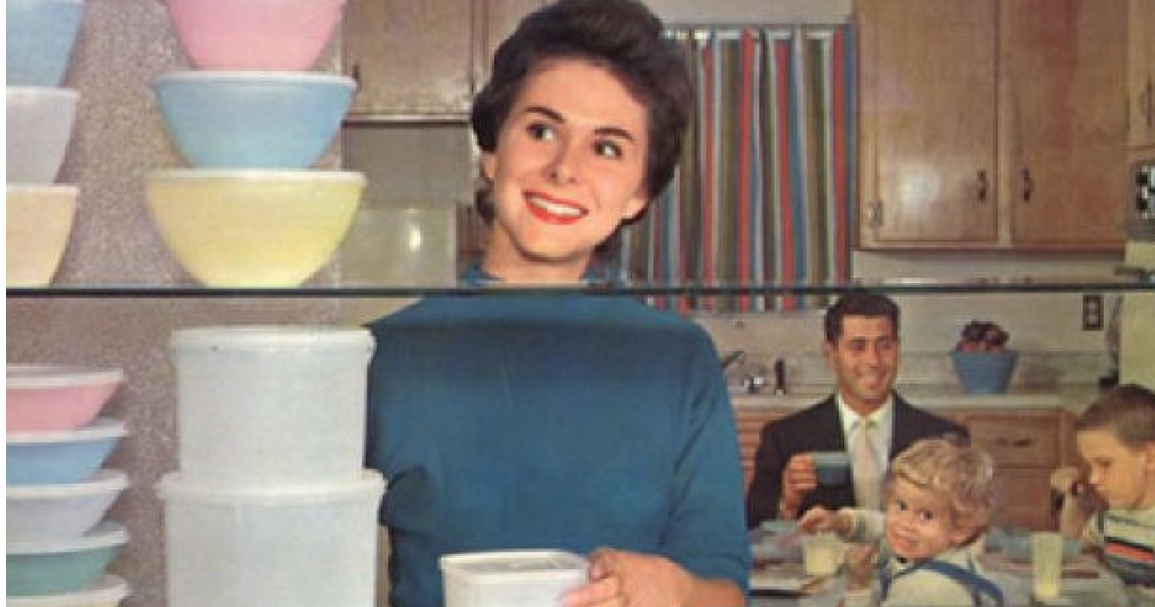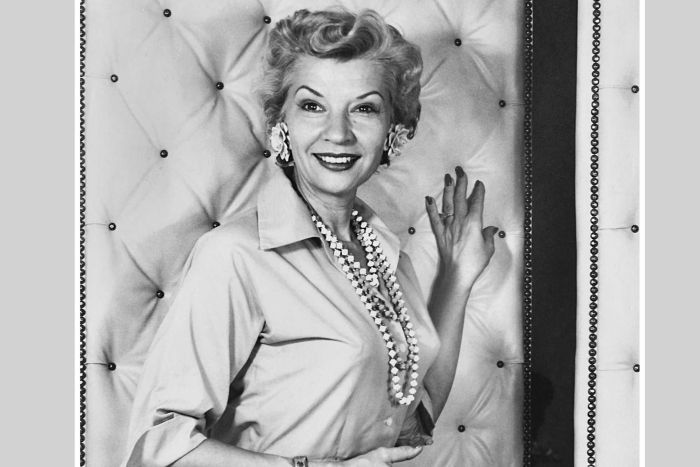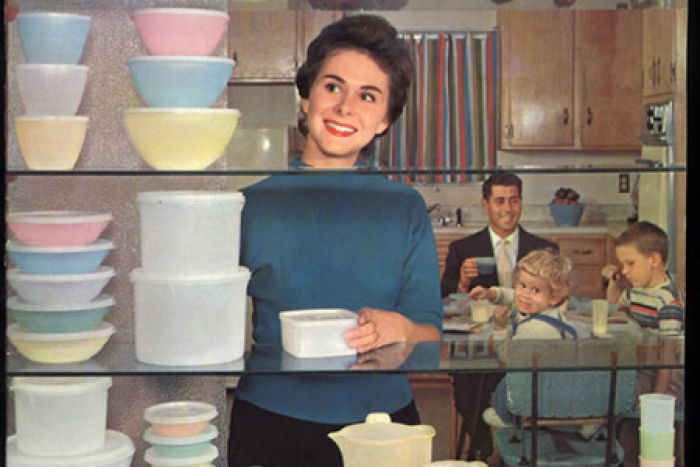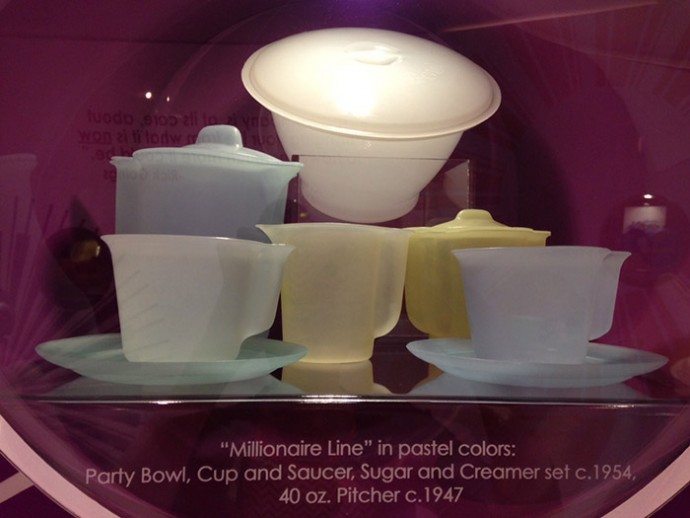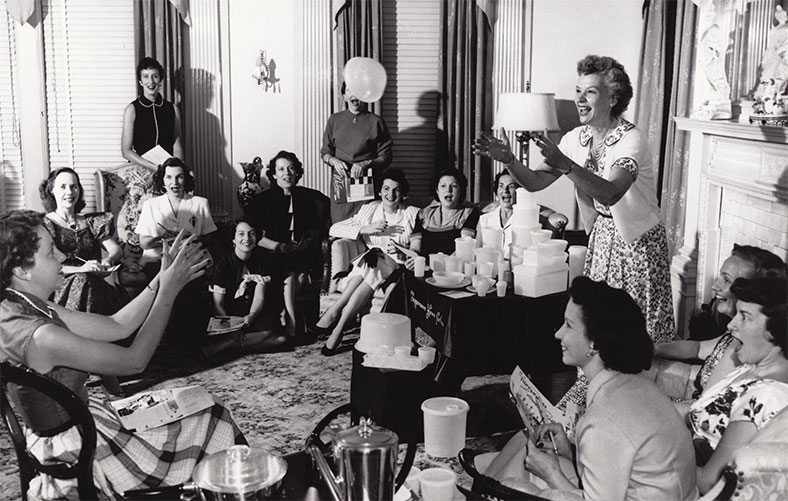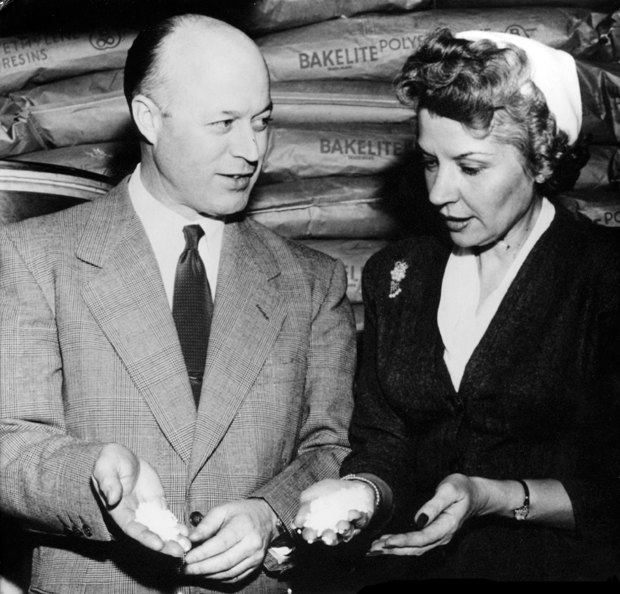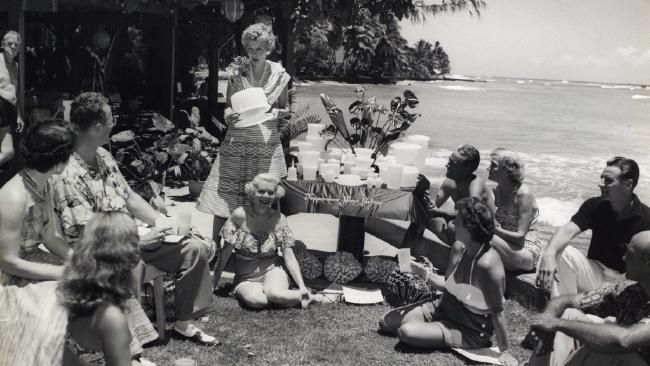You may know it as something to store your leftovers or a more environmentally friendly way to pack your lunch, but to one mom Tupperware completely changed her life.
There is more to Tupperware than leftovers. The story of this plastic container made from industrial waste material, ended up as a symbol of female empowerment and helped to usher women into the workforce in the 1950s.
Brownie Wise was named for her big, brown eyes and was born in rural Georgia. After her parents divorced she traveled with her mother, who organized union rallies. She quickly learned that she was a gifted speaker after touring the Deep South with her mother.
"[They] were surprised that someone so young could deliver a speech like a pastor," wrote Bob Kealing in his biography Tupperware Unsealed.
After briefly marrying, she became a single mom living in the suburbs of Detroit. During World War II, she worked as a secretary but was unfulfilled by the job. On the side, she wrote an advice column for the Detroit News under the pen-name "Hibiscus". Creating a fantasy life as a housewife with her child and husband in a home she referred to as "Lovehaven", Hibiscus had everything that Wise did not.
Her Start In Sales
One day a bad door-to-door salesman came to her step with a terrible pitch for cleaning supplies. Stanley Home Products was also experimenting with a new sales model: home parties. A New Hampshire mop salesman watched sales skyrocket after having a bunch of women over for a party that included a mop demonstration. Thinking it would be a fun job on the side, Wise started selling Stanley products at parties too. Not long after, she was making enough money to quit her secretary job.
Thanks to her gift of gab, Wise rose through the ranks of the company and was soon management. She had aspirations to ascend even higher, but her dreams were quashed at a meeting with Stanley head Frank Beveridge.
He told her she would never become an executive in the company because their halls were "no place for a woman". Furious, Wise returned home and made a vow to prove Beveridge wrong.
Her Introduction to Tupperware
Wise was first introduced to Tupperware by her coworker who saw the products gathering dust in a department store. At first, Wise didn't think there was anything special about them, but when she accidentally knocked a Tupperware bowl off the table she realized it's full potential.
Instead of breaking, the bowl bounced. Available in many pastel colors and flexible shapes, the function outweighed everything else on the market. Convinced that this was going to be a hit, Wise traded in her Stanley brooms in 1949 and started throwing parties to sell this new kitchen product.
Not only did Tupperware extend the life of leftovers and stretch the family's budget, it was a revolution for women. At parties, Wise was not only able to convince people that the product was amazing, she was able to recruit these women to sell Tupperware alongside her.
By October of 1949, she had recruited 19 salespeople which allowed her to move her supplies from her home into a larger warehouse. Ballooning sales, caught the attention of the founder of the Tupperware Corporation, Earl Silas Tupper.
Tupper had struggled to get consumers to buy from the 14 products he called the "Millionaire Line" until Wise came along.
Moving Up In The Company
In 1949, she racked up $150,000 in orders and was offered a promotion that included distribution rights to the entire state of Florida. In 1950, she moved to the south with her son, Jerry, and her mother. Opening a new store space, she continued scouting for new salespeople.
After dealing with disputes over turf with other distributors, she was fighting with botched orders, shipping delays and product shortages. That's when she made a personal phone call to Tupper, whom she had never spoken to before. She skipped past niceties and ripped into him because these issues were hurting her bottom line, and his. Assuring her, these issues would be fixed, in exchange for a favor: he wanted to know her sales secrets.
After meeting the following month, Tupper heeded Wise's advice and created a new division just for home parties and asked her to be the general manager. She had finally reached her goal of becoming an executive.
"She was the yin to Tupper's yang," Kealing writes. "Where he was fussy and reclusive, Wise lived to mingle with and inspire the dealer workforce." They were a match made in sales heaven. Or so it seemed."
In 1952, after a year under Wise's management, wholesale orders exceeded $2 million. During the second half of the year sales tripled and she became the company's shining star. It was the perfect match for many housewives because it didn't challenge their husband's authority or the status quo, but it allowed for them to be more independent and make extra money.
"No woman got praised for scrubbing floors," Elsie Mortland, who became Tupperware's Home Kitchen Demonstrator, told Kealing in an interview in 2005. "But when they got praised for selling Tupperware, they had something to be proud of."
Success was limited to only hard a person was willing to work, and she preached this to all her saleswomen.
Where It All Started To Unravel
In 1954, she was the first women to appear on the cover of Business Week. Tupper had started to become concerned that Wise was starting to outshine him and the product he created. When the company started to face hard times in 1955 the relationship was further strained.
In 1958, Tupper traveled to Florida and fired Wise. She received $30,000 after a legal battle, but she didn't own her house and was ordered to vacate. She also didn't have any stocks in the company, or even own many of the clothes she wore. The man she had helped to make a millionaire had effectively ruined her career.
Later that year, Tupper sold the company to Rexall Drug for $16 million, divorced his wife and bough an island in Central America. He later died in Costa Rica in 1983.
Wise, continued to try starting new companies but never saw the success she had with Tupperware. She lived with her son in her home in Florida until she died in 1992.
Her influence however, was never forgotten. The product is sold in about 100 countries worldwide and has become an important part of our food culture.
"I needed the money for me and my kid," she would say. "So I got out there and made it."
Source: Mental Floss /
